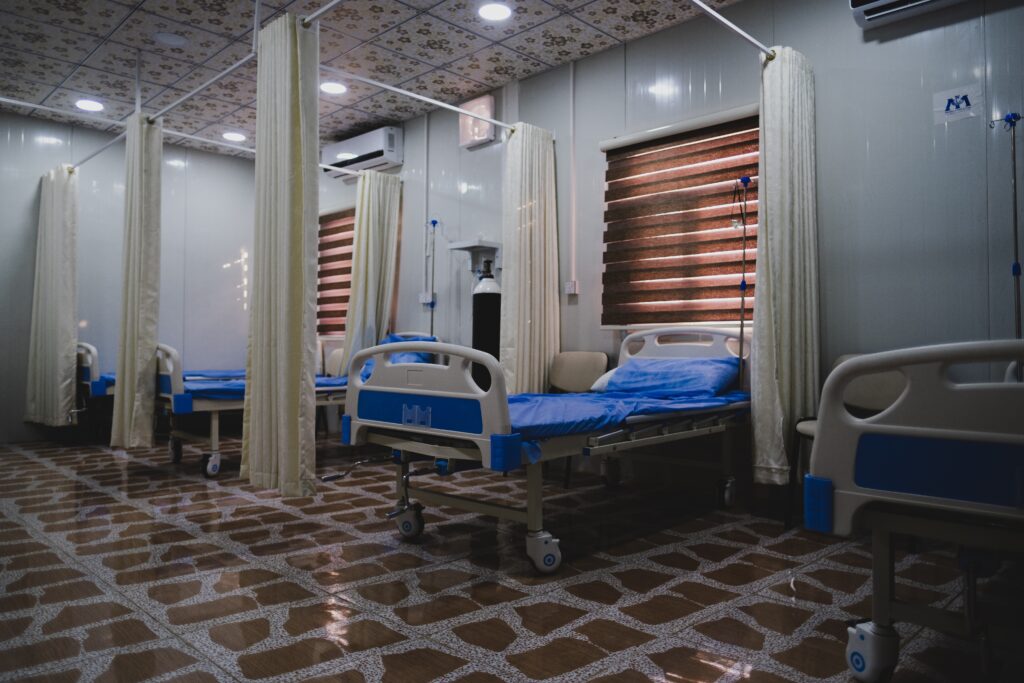The rapid growth of Medicare Advantage plans is presenting significant challenges for rural hospitals across the United States. As more than half of seniors opt for private Medicare Advantage plans instead of traditional Medicare, enrollment in these plans is steadily increasing in rural areas. However, small-town hospitals are finding that the payment system of Medicare Advantage is slow and unreliable, posing a threat to their financial viability. Since 2010, over 150 rural hospitals have closed down, with many attributing their struggles to the payment issues associated with Medicare Advantage. Hospital leaders argue that the negotiated rates offered by these private insurers often fall short of those provided by traditional Medicare. The impact is particularly pronounced for critical access hospitals, which rely on Medicare’s extra compensation for low patient volumes. With Medicare Advantage plans diverting patients and impeding reimbursement, rural hospitals are left grappling with a bleak future.

Get The Best Medicare Advantage Plans Here!
Introduction
The rapid growth of Medicare Advantage has raised concerns about its impact on rural hospitals. Medicare Advantage is a private alternative to traditional Medicare, and its increasing enrollment has led to financial challenges for rural hospitals. This article will explore the growth of Medicare Advantage, the challenges faced by rural hospitals, the contracting and payment issues associated with Medicare Advantage, the limited healthcare options for patients, and the calls for regulatory action to address these issues. It will also emphasize the urgent need for federal action to ensure the viability of rural hospitals and access to healthcare for rural communities.
Medicare Advantage’s Rapid Growth
Overview of Medicare Advantage
Medicare Advantage, also known as Medicare Part C, is a private health insurance option for Medicare beneficiaries. It combines hospital insurance (Part A) and medical insurance (Part B), and often includes prescription drug coverage (Part D) as well. Medicare Advantage plans are offered by private insurance companies approved by Medicare and are an alternative to traditional Medicare.
Medicare Advantage plans provide additional benefits beyond what is covered by traditional Medicare, such as dental, vision, and hearing services. They also typically offer care coordination and disease management programs. Medicare Beneficiaries have the option to choose Medicare Advantage instead of traditional Medicare, and enrollment in Medicare Advantage has been steadily increasing.
Increasing Enrollment in Medicare Advantage
Medicare Advantage has experienced significant growth in enrollment, with more than half of seniors now choosing private Medicare Advantage plans. While enrollment is highest in metropolitan areas, it has also increased fourfold in rural areas since 2010. This growth in enrollment has raised concerns about its impact on rural hospitals.
Impact on Rural Hospitals
Rural hospitals, particularly those designated as critical access hospitals, have been heavily impacted by the growth of Medicare Advantage. Critical access hospitals serve rural communities with low patient volumes, and they receive additional Medicare payments to compensate for these low volumes. However, Medicare Advantage plans often offer negotiated rates that do not match those of traditional Medicare, leading to financial challenges for rural hospitals.
The financial impact on rural hospitals has been significant, with more than 150 rural hospitals closing since 2010. States such as Texas, Tennessee, and Georgia have experienced the most closures. This trend is alarming, as rural hospitals are vital healthcare providers for their communities, and their closures result in limited access to essential healthcare services for rural residents.
Find Out How Medicare Advantage Plans Are Changing Rural Hospitals.
Challenges for Rural Hospitals
Closure of Rural Hospitals
The closure of rural hospitals has become a pressing issue in the United States. Since 2010, 150 rural hospitals have closed, leaving many rural communities without easy access to healthcare services. These closures are often attributed to financial challenges faced by rural hospitals, including the slow payment and nonpayment by Medicare Advantage.
Financial Impact on Critical Access Hospitals
Critical access hospitals, which are designated by Medicare to provide essential healthcare services in rural areas, have been particularly affected by the growth of Medicare Advantage. These hospitals rely on Medicare payments to sustain their operations, but Medicare Advantage plans often offer lower reimbursement rates than traditional Medicare. This has resulted in financial strains on critical access hospitals, making it difficult for them to cover their operating costs and provide quality care to their communities.
Slow Payment and Nonpayment by Medicare Advantage
One of the main challenges faced by rural hospitals is the slow payment and nonpayment by Medicare Advantage plans. Hospital leaders have reported that Medicare Advantage plans often delay payments or fail to pay for the services provided. This puts a strain on the financial stability of hospitals, as they rely on timely payments to cover their expenses and maintain operations. The slow payment and nonpayment issues have further exacerbated the financial challenges faced by rural hospitals, contributing to their closures.
Contracting and Payment Issues
Negotiated Rates vs. Traditional Medicare Rates
One of the key issues with Medicare Advantage is the disparity between the negotiated rates offered by the plans and the reimbursement rates provided by traditional Medicare. Medicare Advantage plans negotiate rates with hospitals and providers, which may often be lower than the rates set by traditional Medicare. This discrepancy in reimbursement rates puts rural hospitals at a disadvantage, as they struggle to cover their costs with lower payments from Medicare Advantage plans.
Difficulties in Receiving Payment
Rural hospitals have faced difficulties in receiving payment from Medicare Advantage plans. The slow payment process and frequent delays in reimbursement create financial uncertainty for hospitals, making it challenging for them to plan for their operating expenses. These payment issues add to the financial strains faced by rural hospitals and further jeopardize their viability.
Unpaid Balances and Financial Losses
The slow payment and nonpayment issues by Medicare Advantage plans have resulted in unpaid balances and financial losses for rural hospitals. Hospitals have reported significant amounts owed to them by Medicare Advantage plans for the services they have provided. These unpaid balances accumulate over time, placing a significant burden on the financial stability of rural hospitals. The financial losses incurred by hospitals have led to budget constraints and limited resources, ultimately impacting the quality of care they can provide to their patients.

Limited Healthcare Options for Patients
Narrowed Provider Networks
Medicare Advantage plans often have narrowed provider networks, which limit the choice of healthcare providers available to patients. This can be particularly challenging for patients in rural areas, where access to healthcare providers may already be limited. If hospitals or providers do not contract with Medicare Advantage plans, patients may face difficulties in accessing the care they need within their network. This restricted access to healthcare providers further exacerbates the healthcare disparities faced by rural communities.
Out-of-Network Care Costs
When patients are unable to receive care within their Medicare Advantage plan’s network, they may seek out-of-network care. However, out-of-network care often comes with higher costs for patients. Patients may be required to pay a larger portion of the cost, or they may be responsible for the full payment. This financial burden on patients can deter them from seeking necessary healthcare services, leading to delays in care and potentially worsening health outcomes.
Impact on Nursing Homes and Rehabilitation Facilities
The limited healthcare options under Medicare Advantage plans also affect nursing homes and rehabilitation facilities. In rural areas, nursing homes and rehabilitation facilities may choose not to accept Medicare Advantage patients due to payment issues. As a result, patients reliant on Medicare Advantage plans may struggle to find suitable nursing home or rehabilitation care within their network. This lack of access to necessary long-term care services further hinders the overall healthcare options available to patients in rural areas.
Calls for Regulatory Action
Importance of Holding Insurers Accountable
The challenges faced by rural hospitals and patients under Medicare Advantage have led to calls for regulatory action to hold insurers accountable. It is crucial to ensure that Medicare Advantage plans fulfill their obligations and provide fair and timely payments to hospitals and providers. Holding insurers accountable will help alleviate the financial burden on rural hospitals and maintain the viability of healthcare services in rural areas.
Congressional Concerns
Congressional members have expressed concerns about the impact of Medicare Advantage on rural hospitals and healthcare access. A bipartisan group of Congress members, led by Senator Sherrod Brown, has urged federal agencies to take action to ensure that Medicare Advantage insurers pay health systems what they owe for patient care. The concerns raised by Congress highlight the urgency of addressing the challenges faced by rural hospitals and the need for regulatory solutions.
CMS Response and Proposed Rule Changes
The Centers for Medicare & Medicaid Services (CMS) has responded to the concerns regarding Medicare Advantage and proposed rule changes to address some of the issues faced by rural hospitals and patients. CMS has taken steps to ensure that private insurance companies are held accountable for providing quality coverage and care. The proposed rule changes aim to speed up care and address concerns about prior authorization, which can delay access to necessary healthcare services. These proposed changes demonstrate the recognition of the challenges and the commitment to finding solutions to improve the Medicare Advantage program.

Urgent Need for Federal Action
Anticipating Future Enrollment
Given the rapid growth of Medicare Advantage, it is crucial to anticipate future enrollment trends, particularly in rural areas. If current trends continue, enrollment could reach 50% of rural Medicare beneficiaries in about three years. This projected increase in enrollment emphasizes the need for immediate federal action to address the financial challenges faced by rural hospitals and ensure their sustainability.
Reimbursement Matching for Sustainability
To support the viability of rural hospitals, it is essential to establish reimbursement matching that reflects the costs of providing care. Matching the reimbursement rates of Medicare Advantage plans with those of traditional Medicare would help alleviate the financial strain on rural hospitals and ensure fair payment for the services they provide. Reimbursement matching is crucial for the long-term sustainability of rural hospitals and the preservation of healthcare access in rural communities.
Seeking Solutions to Keep Rural Hospitals Viable
Federal action is urgently needed to seek comprehensive solutions that address the challenges faced by rural hospitals and patients under Medicare Advantage. This requires collaboration between government agencies, policymakers, healthcare providers, and insurers to develop strategies that ensure the viability of rural hospitals and access to quality healthcare services in rural areas. It is essential to prioritize the healthcare needs of rural communities and work towards sustainable solutions that improve the financial stability of rural hospitals and enhance healthcare outcomes for rural residents.
Conclusion
The rapid growth of Medicare Advantage has had a detrimental impact on rural hospitals, risking their viability and limiting healthcare options for patients in rural areas. The financial challenges faced by rural hospitals, stemming from slow payment and nonpayment by Medicare Advantage plans, have resulted in the closure of many rural hospitals. The limited healthcare options under Medicare Advantage, including narrowed provider networks and increased out-of-network costs, further compound the challenges faced by patients in rural areas.
Regulatory action is needed to hold insurers accountable, address the concerns raised by rural hospitals, and ensure fair payment and access to care. Federal agencies, Congress, and CMS have a vital role in implementing necessary changes to the Medicare Advantage program and developing solutions that support the long-term sustainability of rural hospitals.
Immediate federal action is necessary to anticipate future enrollment trends, establish reimbursement matching, and seek comprehensive solutions to keep rural hospitals viable. It is imperative to prioritize the healthcare needs of rural communities and work towards a healthcare system that guarantees access to quality healthcare services for all, regardless of their geographical location.
